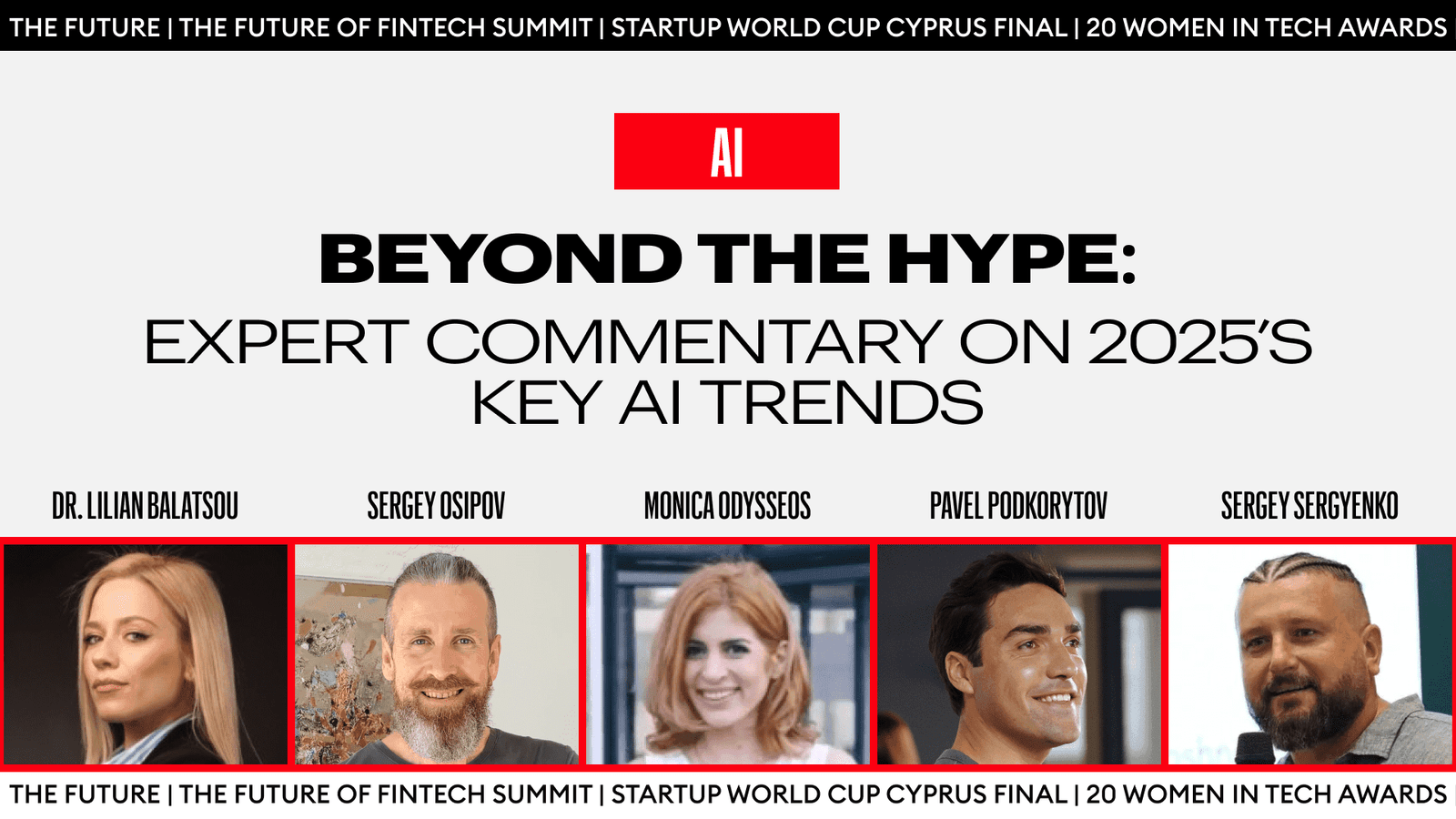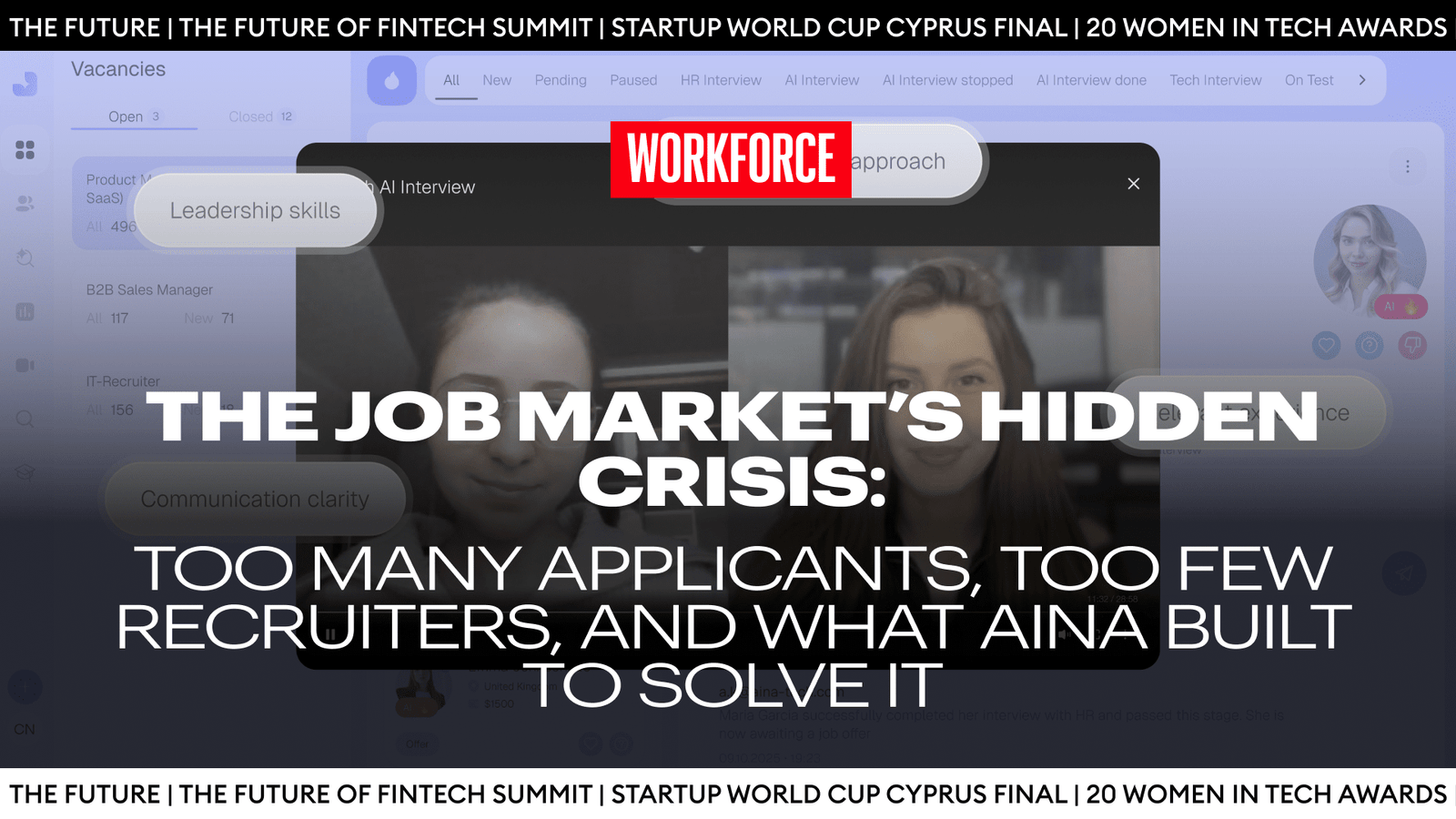Following the release of our article Five AI Trends to Watch for in 2025, we invited leading voices in the AI space to share their views on how these trends are unfolding. From the evolution of Agentic AI and Generative AI to the growing importance of ethics, regulation, and explainability, their commentary adds depth and nuance to the conversation. Here’s what they had to say — and what it means for the year ahead.
Dr. Lilian Balatsou: AI’s Pragmatic Evolution
Dr. Lilian Balatsou, an AI expert, highlighted that businesses will move from AI experimentation to adopting cost-effective, scalable solutions that deliver tangible business value. “The focus will shift from novelty to measurable impact,” she said.
Follow THE FUTURE on LinkedIn, Facebook, Instagram, X and Telegram
She also pointed out that generative AI will evolve beyond isolated applications and become integrated into core business operations. “Companies will prioritize strategies that enhance efficiency and reliability,” she added.
On AI ethics, Dr. Balatsou emphasized that ethical principles will be embedded from the start. “Organizations will ensure transparency, fairness, and compliance in every model, not just as fixes to regulatory pressures,” she concluded.
Sergey Osipov: Shifting AI Landscape
Sergey Osipov, co-founder of Placy AI, noted that computing is no longer a bottleneck: “I got several proposals with discounts the past month.” He also highlighted that major AI players are slowing down, with token costs dropping, presenting opportunities for vertical industry AI startups: “Time to invest in vertical industry AI startups.”
Osipov emphasized the rising stars of AI, including Multimodal AI and AI agents: “GenAI has played great. Multimodal AI, Small Language Models, and AI agents are the new stars.”
He also pointed out that B2C AI is becoming monetizable, as demonstrated by Perplexity: “€20 for Perplexity search instead of free Google? Wild.”
Lastly, Osipov warned about AI regulation in the EU: “The EU will keep [stupidly] regulating AI into the ground. Check their announcements before launching your startup in Europe.”
Monica Odysseos: Shaping The Future Of AI
Monica Odysseos, Senior Manager and Head of AI and Data Lab at Grant Thornton, predicted the rise of autonomous AI agents, stating, “By 2025, we anticipate the emergence of agentic AI—autonomous agents capable of performing complex tasks with minimal human intervention.” Odysseos noted that while this will transform industries, it raises concerns about security and oversight.
She also discussed advancements in multimodal AI, saying, “This will enhance machine understanding and lead to more intuitive AI applications.” However, she warned about potential biases and the need for interpretability in these systems.
Finally, Odysseos emphasized the importance of AI literacy, particularly with the EU’s AI Act. “Article 4, effective from February 2025, mandates that AI system providers ensure their staff possess sufficient AI literacy,” she explained. She stressed that training and upskilling will be crucial for responsible AI deployment.
Pavel Podkorytov: Redefining AI Monetization And User Interaction
Pavel Podkorytov from AI Hub outlined several AI trends for 2025. He highlighted the shift in user behavior, noting that the transition from traditional search engines to personalized AI assistants, like Perplexity, will reshape monetization models and advertising strategies. “As users move towards AI-driven interactions, the market for internet traffic will change dramatically,” he said.
He also discussed the rapid development of interactive AI alongside generative models, emphasizing the integration of AI into both virtual and physical worlds. “This interaction will lead to practical applications that will significantly improve everyday life,” Podkorytov explained.
On the efficiency of generative AI, Podkorytov noted that these systems will excel at data analysis and reasoning, allowing for faster research and advancements in medicine. “AI will play a key role in accelerating the development of innovative treatments for serious diseases,” he said.
Podkorytov further predicted a growing divide between those embracing AI and those who do not adapt, with clear advantages for the former. “Those who integrate AI into their daily lives will have a distinct edge over those who remain passive,” he observed.
Finally, he forecasted a major improvement in media generation, where photo, video, and audio content will be produced without visual or audio artifacts. “Users will soon be able to create high-quality multimedia projects from their own stories,” Podkorytov concluded.
Sergey Sergyenko: From Hype to Value
Sergey Sergyenko, CEO at Cybergizer highlighted that key AI trends for 2025—Agentic AI, Generative AI, and AI ethics—can be better understood through Gartner’s 2024 Hype Cycle.
Generative AI has moved past peak hype, with focus shifting to real business value and ethical concerns. Agentic AI is gaining traction but still needs human oversight. Tools like Salesforce’s Agentforce show promise, though full autonomy remains a future goal. Some IT leaders may overestimate its current capabilities, despite progress from models like OpenAI’s o1/o3 and DeepMind’s Mariner. Explainable AI is becoming vital for transparency as systems grow more complex. AI continues to enhance workplace productivity by automating routine tasks, giving companies time to implement existing tools. Finally, ethics and regulation—driven by initiatives like the EU AI Act and growing cybersecurity risks—are becoming central to responsible AI use.
In addition to the five main trends, AI in 2025 will see progress in advanced reasoning, virtual training environments, and wider use of multimodal models. AI will play a bigger role in science and defence, while competition in AI hardware will grow, challenging Nvidia.
Enterprise adoption of the latest models may slow as companies focus on open-source tools and stick with proven agentic workflows. Composite AI is emerging as the next step, offering more flexible and scalable solutions. AI engineering and knowledge graphs are also gaining importance for explainability and scale.
Data governance, risk, and safety will be essential for responsible AI use. Overall, AI in 2025 will prioritise real-world applications, ethics, and combined approaches — even if cutting-edge model adoption moves slowly.












